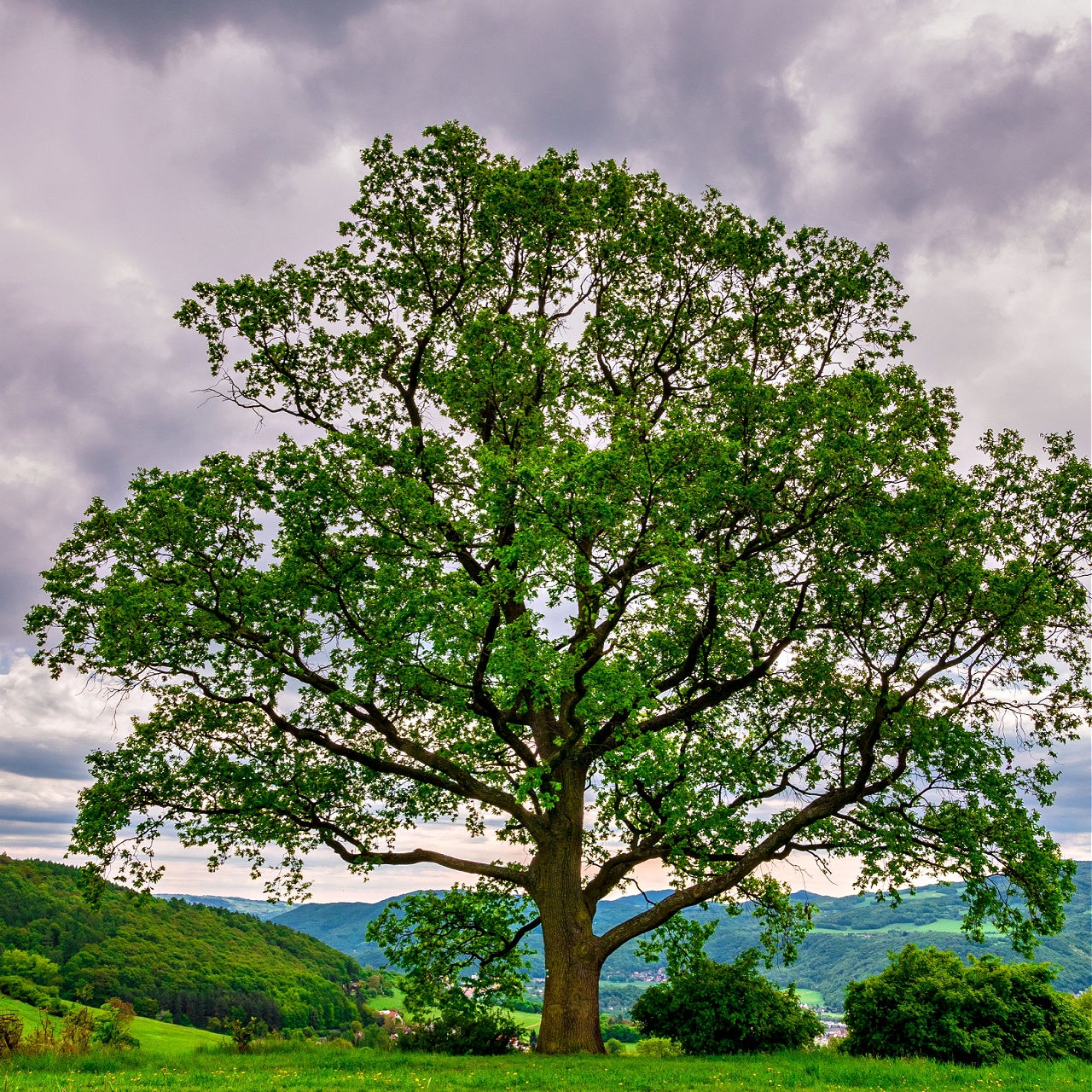Black Oak Seedlings - 100 Plants
Black Oak Seedlings - 100 Plants
This plant ships:
Ships November–April within 10 business days after the order is placed.Couldn't load pickup availability
Exposure
Full SunHeight at Maturity
Over 25 FeetUsage
LandscapingShipped As
Bare-rootShips
Ships November–April within 10 business days after the order is placed.Planting Zones
5-9Black Oak Seedlings
Black Oak Seedlings Plant Description: Quercus Kelloggii is part of the Red Oak family. It will grow in all slope and aspect positions but prefers large yards and fields with ample sunlight.
Wildlife Loves Black Oak Seedlings
The nuts or acorns produced are favorites of birds, small rodents, turkeys, deer, insects, squirrels, and sometimes people. Cavities in the tree are preferred homes for tree squirrels, woodpeckers, owls, and even American black bears. The tree also provides timber and shelter.
These Seedlings Are Used As Dyes
The inner bark layers are yellow and orange and are sometimes used to make dyes. Quercus kelloggii is a popular choice for landscaping projects by government agencies and commercial entities.
Hardy Planting Zone- U.S.D.A. Zone 3 through 9
The Foliage Of These Seedlings Are Firey Red In Spring
The leaves bud in April and turn dark brown, orange, and red before dropping off the tree in the fall. The nuts mature from October to early November. Nut production begins after about 20 years and continues up to approximately 75 years of age.
Bloom Color: The leaves are shiny deep green on the upper surface and yellowish-brown on the lower. The tree produces light green acorns that turn brown after about two years of maturation. The bark darkens over time.
Height at Maturity: The tree seedlings can reach 82 to 118 feet, depending on the climate. It could grow faster by 18-22 inches per year.
These Seedlings Thrives In Acidic Soil
Black Oak Seedlings trunks are usually bare of branches up to 39 feet. Some species can live as long as 500 years. Soil Type Preferred: Well-drained and acidic soil that can thrive in clay or sandy soil. It will tolerate dry, poor soil. Sun or Shade: It prefers direct sunlight over shade for optimum growth.
Share






